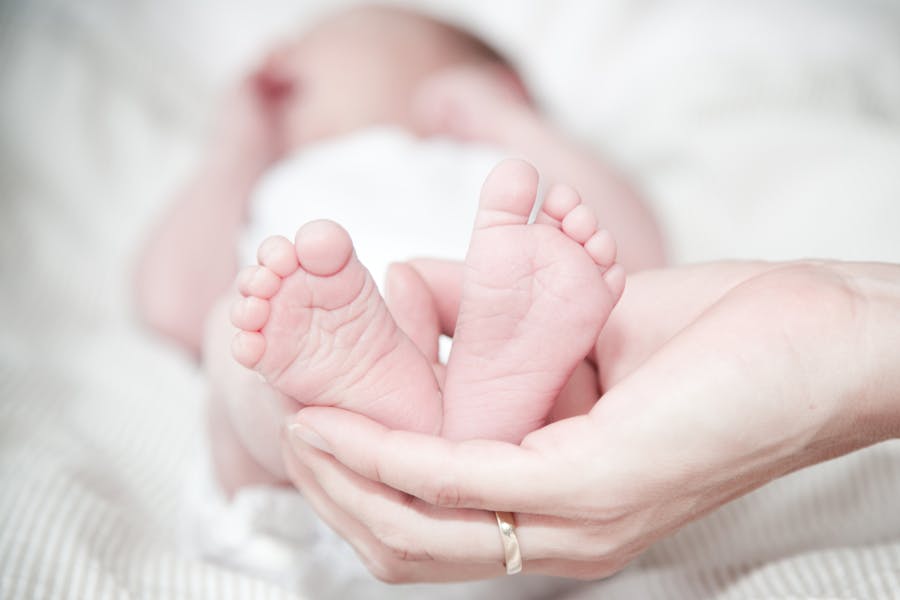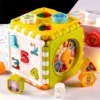Bringing a newborn home is a joyful yet challenging experience. Among the many hurdles parents face, getting their baby to sleep in a bassinet can be particularly frustrating. If you find yourself asking, “Why won’t my baby sleep in the bassinet?” you’re not alone. Many new parents encounter this issue, and understanding the common reasons behind it can help you find effective solutions. In this article, we’ll explore the factors that may be affecting your baby’s sleep and provide practical tips to help you create a peaceful sleep environment.
Understanding Infant Sleep Patterns
Before diving into the reasons why your baby may not sleep in their bassinet, it’s important to understand normal infant sleep patterns. Newborns typically sleep between 14 to 17 hours a day, but this sleep is often broken into short periods due to their need for frequent feedings.
Infants have shorter sleep cycles than adults, spending more time in the lighter stages of sleep. This can make them more prone to waking up when placed in a new environment, such as a bassinet. Establishing a consistent sleep routine early on can help your baby adjust to sleeping independently.
Common Reasons Why Babies Won’t Sleep in a Bassinet
Comfort Issues
One of the primary reasons babies may resist sleeping in a bassinet is discomfort. Bassinets can be firmer than cribs, which may not provide the soft, cozy feeling your baby is used to. Additionally, if the bedding is too thick or has too many blankets, it can create an uncomfortable sleeping surface.
Hunger and Feeding
Hunger is a significant factor in an infant’s ability to sleep soundly. Newborns have small stomachs and need to feed frequently, often every two to three hours. If your baby wakes up shortly after being placed in the bassinet, they may still be hungry or need comfort feeding to feel secure enough to sleep.
Temperature Regulation
Maintaining the right temperature is crucial for your baby’s sleep quality. If the room is too hot or too cold, it can disrupt their ability to fall asleep in the bassinet. Babies are sensitive to temperature changes, and an uncomfortable environment can lead to restless sleep.
Separation Anxiety
As babies grow, they begin to develop a sense of attachment to their parents. Being placed in a bassinet, away from the comforting presence of their mother or father, can cause feelings of anxiety. This separation can be unsettling for some infants, leading to fussiness and refusal to sleep.
Unfamiliar Environment
For a newborn, the bassinet is a new space. Babies thrive on familiarity and routine, so a change in sleeping location can be jarring. If your baby is used to sleeping in your arms or a different area, transitioning to a bassinet may take time.
Solutions to Help Your Baby Sleep in the Bassinet
Enhancing Comfort
- Choose the Right Mattress: Ensure the bassinet has a firm, flat mattress that meets safety standards. You can also consider adding a thin mattress pad for extra comfort.
- Use Swaddling: Swaddling can provide a sense of security and mimic the snug feeling of being held. Just make sure to swaddle your baby safely to avoid hip dysplasia.
Feeding Strategies
- Feed Before Sleep: Try to ensure your baby is fed right before placing them in the bassinet. This helps minimize the chances of them waking up due to hunger.
- Practice Dream Feeding: This involves feeding your baby while they are still drowsy. It can help prolong their sleep once they are placed in the bassinet.
Temperature Control
- Maintain a Comfortable Room Temperature: Aim for a room temperature between 68°F and 72°F (20°C to 22°C). Dress your baby in light layers to prevent overheating.
- Use a Sleep Sack: Instead of blankets, consider using a sleep sack to keep your baby warm without the risk of suffocation.
Gradual Transition
- Co-Sleeping Alternatives: If your baby is accustomed to sleeping close to you, try placing the bassinet next to your bed. This can help them feel secure while still encouraging independent sleep.
- Create a Familiar Atmosphere: Place a piece of your clothing in the bassinet or use a sleep aid, such as white noise, to create a calming environment that mimics the comfort of being held.
Creating a Sleep-Friendly Environment
- Dim the Lights: Keep the lights low during nighttime feedings and changes to help signal to your baby that it’s time to sleep.
- Limit Disturbances: Try to keep the sleeping area quiet and free from loud noises to create a serene sleep environment.
When to Consult a Healthcare Professional
If your baby continues to resist sleeping in the bassinet despite trying various solutions, it may be time to consult a healthcare professional. Signs that may indicate an underlying issue include:
- Persistent Fussiness: If your baby is excessively fussy or inconsolable, there may be other factors at play, such as colic or reflux.
- Changes in Feeding Patterns: A sudden change in feeding habits or signs of distress during feeding may warrant a discussion with your pediatrician.
- Sleep Patterns: If your baby is not sleeping at all or has erratic sleep patterns, seeking professional guidance can help identify any potential concerns.
Encouraging Healthy Sleep Habits
Establishing healthy sleep habits early can set the foundation for better sleep as your baby grows. Consider implementing the following:
- Establish a Bedtime Routine: A consistent bedtime routine can help signal to your baby that it’s time to sleep. Activities like bathing, reading, or gentle rocking can be calming.
- Be Consistent: Consistency in your approach will help your baby learn what to expect during sleep time.
Conclusion
The question, “Why won’t my baby sleep in the bassinet?” is a common concern among new parents. Understanding the various factors that can affect your baby’s sleep and implementing practical solutions can make a significant difference in their comfort and ability to sleep soundly.
By enhancing comfort, managing feeding strategies, and creating a sleep-friendly environment, parents can help their babies adjust to sleeping in a bassinet. Patience and consistency are key, and always feel free to consult with healthcare professionals if you have concerns about your baby’s sleep patterns.
FAQ’s
- Why won’t my baby sleep in the bassinet?
A. Babies may resist sleeping in the bassinet due to comfort issues, hunger, temperature regulation, separation anxiety, or an unfamiliar environment. - Is it normal for babies to resist sleeping in a bassinet?
A. Yes, it’s common for babies to initially resist sleeping in a bassinet, especially if they are used to being held or if it’s a new environment. - What can I do to make my baby more comfortable in the bassinet?
A. Enhance comfort by ensuring a firm mattress, using swaddles, and maintaining a comfortable room temperature. - When should I be concerned about my baby’s sleep patterns?
A. If your baby shows persistent fussiness, has changes in feeding patterns, or displays erratic sleep habits, consult your pediatrician. - How can I establish a good sleep routine for my baby?
A. Create a consistent bedtime routine that includes calming activities and signals to your baby that it’s time for sleep.









